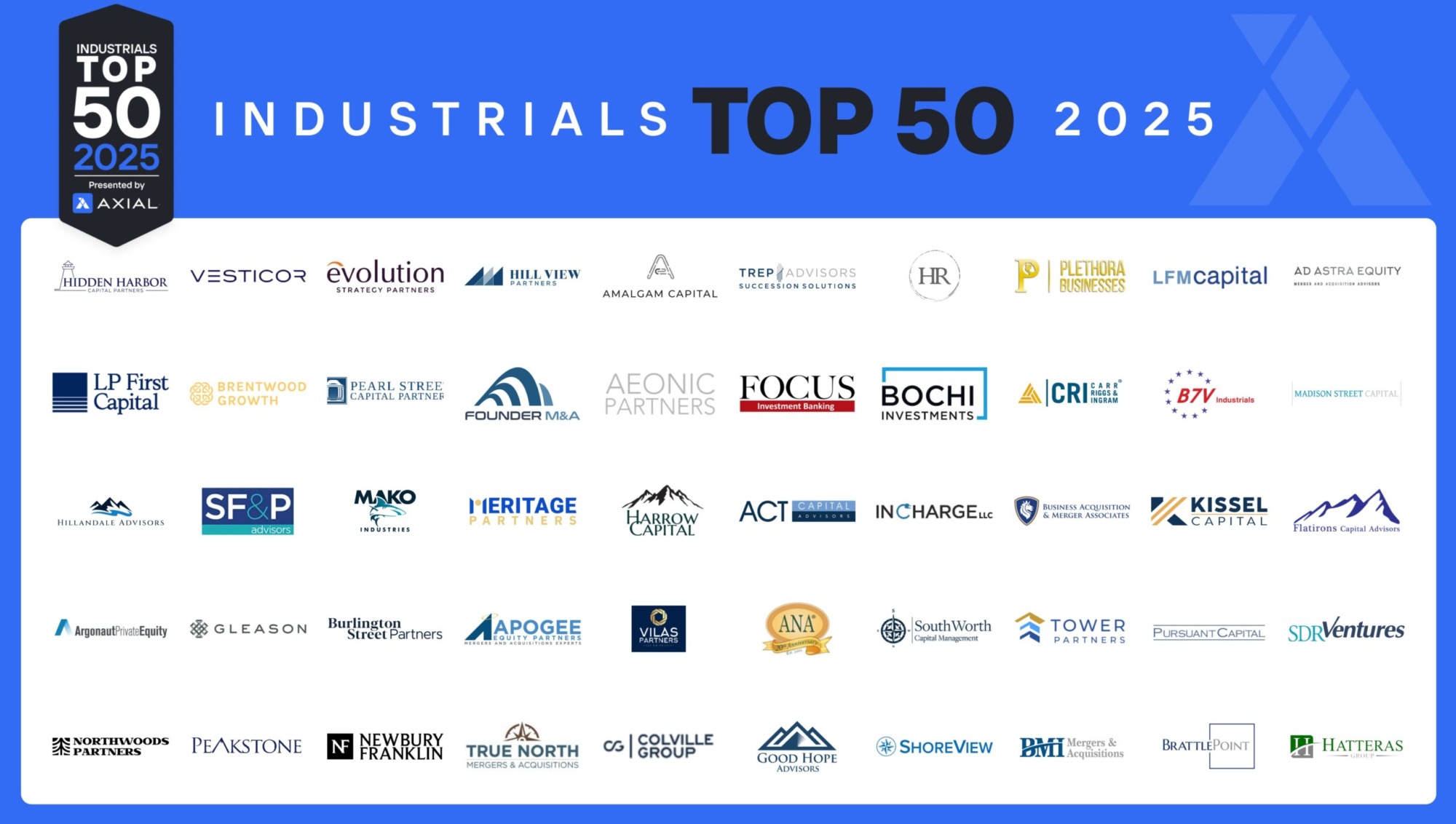
The Top 50 Lower Middle Market Industrials Investors & M&A Advisors [2025]
Industrials remains the most dominant sector in Axial deal flow, representing more than 25% of all deals brought to market…
The Federal Reserve is poised to raise interest rates for the first time in almost a decade, triggering a seismic shift in the economy. At first blush, the end of ultra-cheap money seems a blow for deal making. But not so fast. Turns out the M&A hot streak will continue in the year to come, rate hike or no. Deal makers may even get a boost from the interest uptick.
The Fed’s policy rate has not increased since the heady days of 2006, and it has fluttered near zero since the financial crisis. Now, however, economic growth and employment have stabilized enough to finally raise interest rates. Fed Chair Janet Yellen has stressed the pace and trajectory of the increase over the specific timing, but that has not quelled constant speculation. Long slated for June, the liftoff is now expected to take place in September, if not in December or early next year.
Very well. We know that rates are going up, but what are the implications? 2015 has already notched roughly $1.5 trillion in global deal volume, rivaling pre-crisis highs. Will the Fed’s actions doom the boom? If the cost of money goes up, doesn’t it discourage deals?
There is no shortage of handwringing, but economists and deal makers largely agree that the hike will not be a business setback. To the contrary, certain segments, namely the mid-market, could actually benefit from higher interest rates.
Four Points of Light
The first reason to downplay the rate shock is the nature of the hike itself. The Fed has expressed a preference for a light and measured touch. A slow increase will still leave interest rates historically low, and further escalation will be contingent upon the overall strength of the economy.
Secondly, nothing trumps liquidity in the market. Corporate balance sheets are brimming with cash, private equity firms are similarly flush, and this abundance of capital will have a buffering effect as rates rise. Basically, while most deals will include at least a sliver of debt, there is enough funding out there to tolerate more expensive financing.
Thirdly, deals are corporate imperative. M&A will continue to be the primary means of growth for businesses during a sluggish economic recovery. The economy is growing, but not robustly enough to satisfy corporate objectives. Therefore, acquisitions are key to expansion.
Lastly, corporate confidence is high. Buyers are feeling their oats, sellers are drawn to an upbeat market, and stiffer interest rates will not undermine the strategic logic that drives many deals.
Uneven Impact
Rising rates will affect certain buyers more than others. By and large, strategic buyers, like large corporations, are less swayed by economic adjustments than so-called financial sponsors, like private equity firms. Strategic buyers pursue deals with synergies in mind, and a good opportunity is a good opportunity, regardless of Fed policy. Plus, corporates rely less on leverage to finance acquisitions and instead turn to their war chests and their own stock for funding.
Private equity, on the other hand, could feel the rate pinch more. In general, PE acquisitions are debt-intensive, so climbing interest alters the deal calculus and makes doing business that much more expensive. Ultimately, PE firms seek a strong rate of return on their investment, and more expensive loans means weaker returns, unless they can pay less for the acquisition.
The hike, however, may prove an ally of sorts. Just as PE shops will have to contend with pricier loans, so too will potential targets face costlier capital. Ultimately, corporate earnings could take a small hit, driving down valuations so that PE shops can compete more readily with strategic buyers. The impact on valuations could prove more severe if the company is highly leveraged.
Boon to the Boom
Higher interest rates could prove a boon to the deal market, particularly the middle market, which attracts both financial and corporate buyers. Even the specter of a rate hike — and the subsequent lowering of valuations — could prompt sellers to bring assets to market. For a business owner, nothing adds luster to a sale like the threat of asset deflation. This could help make 2015 a banner year for global M&A, which is determined more by availability than acquisitiveness. Of course, demand is key, but in the end deal booms are fueled by bountiful targets.
In short, the deal making spree will not be undone by the Fed’s rate hike, provided it is a mild and gradual climb. The market may not cheer the prospect of steeper interest, which is inherently burdensome, but nor is it cause for despair. Given the stockpiled cash and rosy corporate outlook, deals are still for the making. Indeed, the rate hike might even help make 2015 one for the M&A record books.
